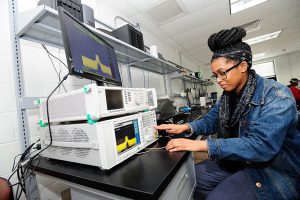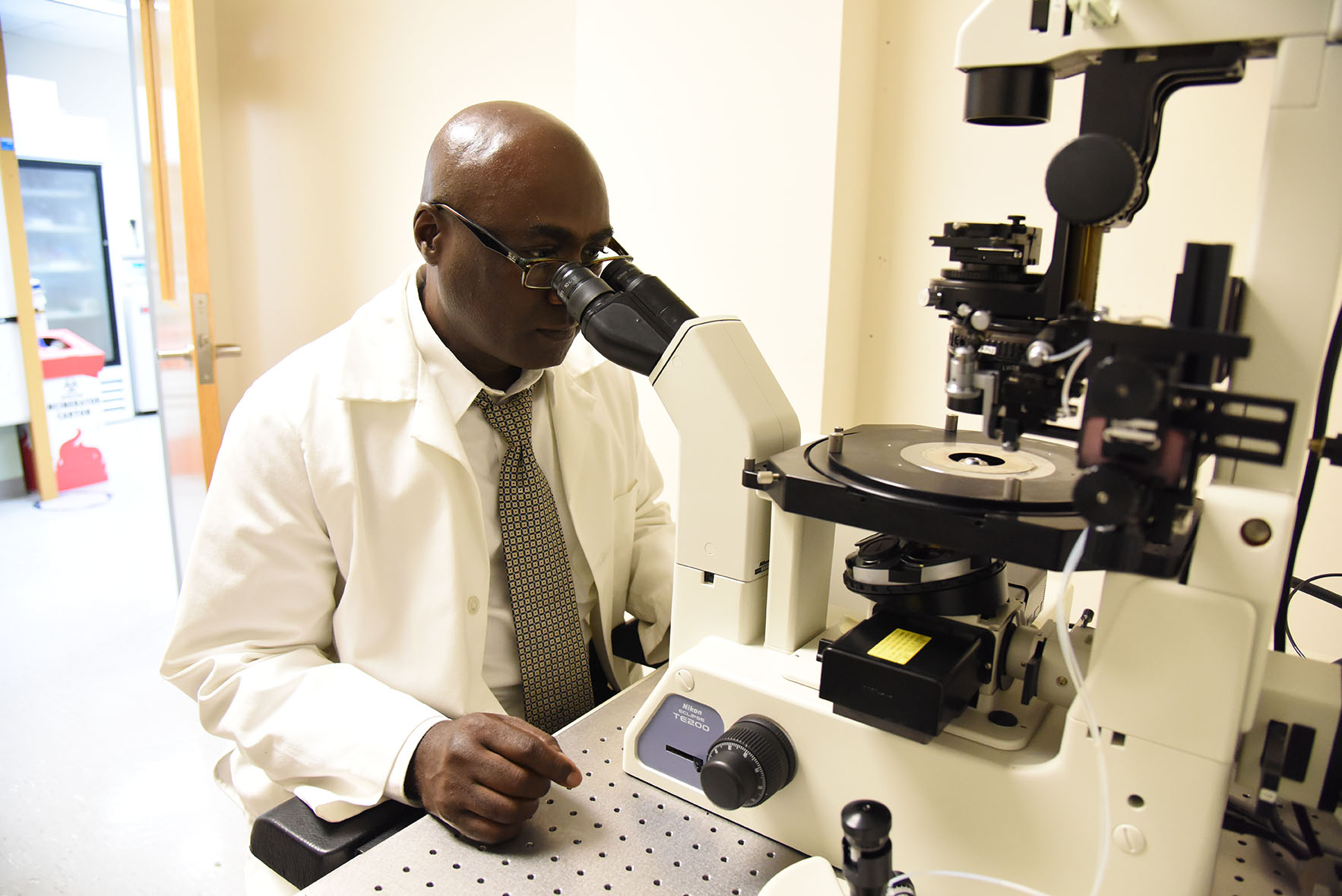Registration services will be closed on Monday, Dec 15th at 11:59 PM and will reopen on Wednesday, Dec 17th, at 12:01 AM. This pause is necessary to ensure data integrity during Canvas roster maintenance.
Morgan State University Receives ‘High Research’ Classification
Release of the 2018 Carnegie Classification Elevates Maryland’s Preeminent Public Urban Research University to R2 Status
The Carnegie Classification of Institutions of Higher Education has moved Morgan State University (MSU) from a moderate research classification of R3 (a ranking it’s held since 2006), to an elevated classification of R2, a status reserved for doctoral universities with high research activity. Morgan joins only 130 other universities nationwide to be given an R2 classification. The reassignment in Carnegie’s 2018 Classification Update comes in the wake of Morgan President David Wilson’s recent unveiling of a new set of goals for the University, which included enhancement of Morgan’s research standing.
“The elevation to R2 ranking is exciting news for Morgan as we continue to advance in our research mission, further demonstrating our value as a hub for innovative research, critical study and development of solutions to the toughest problems of our community,” said President Wilson. “We announced this reclassification as a major goal within our Strategic Plan, and I thank our dedicated faculty, administrators and graduate students for achieving it, by securing funding to conduct unprecedented levels of research at our university.”
 In the lead-up to Morgan’s reclassification as a high research activity doctoral university, the university’s faculty and staff engaged in a proactive and concerted effort to increase research contracts and grant amounts, while also graduating more students and expanding the types of research conducted on campus as well as in the community. MSU is also strengthening its Computer Science Department and advancing its School of Engineering with the addition of new research centers and labs. Recent moves have included the launch of a Cybersecurity Assurance and Policy (CAP) Center, which will provide the U.S. intelligence community with knowledge, methodology, solutions and skilled cybersecurity engineers to prevent penetration and manipulation of the nation’s cyber physical infrastructure.
In the lead-up to Morgan’s reclassification as a high research activity doctoral university, the university’s faculty and staff engaged in a proactive and concerted effort to increase research contracts and grant amounts, while also graduating more students and expanding the types of research conducted on campus as well as in the community. MSU is also strengthening its Computer Science Department and advancing its School of Engineering with the addition of new research centers and labs. Recent moves have included the launch of a Cybersecurity Assurance and Policy (CAP) Center, which will provide the U.S. intelligence community with knowledge, methodology, solutions and skilled cybersecurity engineers to prevent penetration and manipulation of the nation’s cyber physical infrastructure.
The Carnegie Classification has been the leading framework for recognizing and describing institutional diversity in U.S. higher education for the past four and a half decades. Starting in 1970, the Carnegie Commission on Higher Education developed a classification of colleges and universities to support its program of research and policy analysis. Derived from empirical data on the institutions of higher education, the Carnegie Classification was originally published in 1973 and subsequently updated in 1976, 1987, 1994, 2000, 2005, 2010, 2015 and 2018 to reflect changes among colleges and universities. This framework has been widely used in the study of higher education, both as a way to represent and control for institutional differences, and in the design of research studies to ensure adequate representation of sampled institutions, students or faculty.
The classifications and institutional information in the 2018 Classification Update reflect data from degree-granting institutions in the U.S. from 2016 to 2017, specifically enrollment and institutional characteristics information from Fall 2017 and degree completions from academic year 2016–17.
About Morgan
Morgan State University, founded in 1867, is a Carnegie-classified doctoral research institution offering more than 100 academic programs leading to degrees from the baccalaureate to the doctorate. As Maryland’s Preeminent Public Urban Research University, Morgan serves a multiethnic and multiracial student body and seeks to ensure that the doors of higher education are opened as wide as possible to as many as possible. For more information about Morgan State University, visit www.morgan.edu.
# # #
MEDIA CONTACT:
Larry Jones, University PR
(443) 885-3022
Contact Information
Office of Public Relations & Strategic Communications
1700 East Cold Spring Lane
McMechen Hall Rm. 635
Baltimore, Maryland 21251
Contact Information
Office of Public Relations & Strategic Communications
1700 East Cold Spring Lane
McMechen Hall Rm. 635
Baltimore, Maryland 21251


